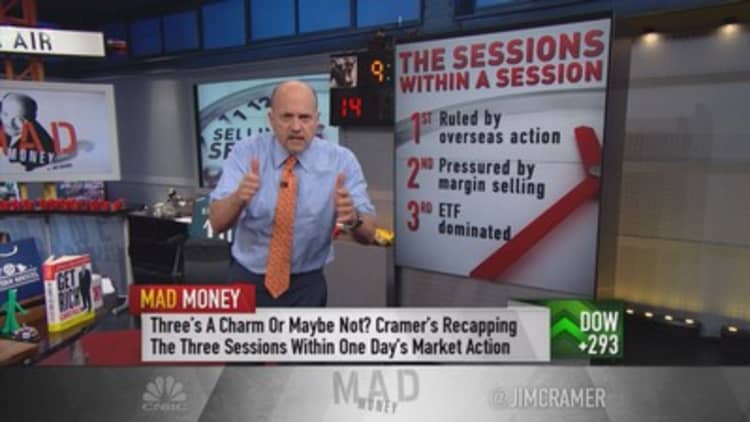Chase Coleman — the most prominent of the "Tiger Cub" hedge fund managers who learned their craft while working for Julian Robertson — suffered a 7.4 per cent loss in the value of his stockpicking fund in August, as Chinese internet stocks bore the brunt of market turmoil.
His $3.5 billion Tiger Global Long-Only Opportunities fund was one of a number of funds to incur losses during a month of volatility which has hit equities-focused hedge fund managers especially hard.
Tiger's larger $6.5 billion long-short fund also had a tough August, down 4.7 per cent, and is now flat for the year.
Concerns over the health of the Chinese economy increased volatility across global markets in August, ultimately causing a sell-off far beyond Chinese stocks.

Numerous big name managers suffered. Bill Ackman's Pershing Square posted a 9.2 per cent decline, wiping out all of his gains for the year. Daniel Loeb's Third Point was down 5.6 per cent, also taking him back to flat.
And John Paulson's $11 billion suite of event-driven hedge funds, which invest in potential takeover targets, fell in value last month, and its "enhanced" merger arbitrage fund, which uses leverage to juice returns, ended August down around 6 per cent, according to investors familiar with its performance. It had been up 20 per cent for the year until the start of August.
A 22 per cent fall in shares of JD.com, the Shanghai-based ecommerce company, was one of the biggest contributors to Tiger's weakness in August, according to investors familiar with its portfolio. The Tiger fund is JD.com's third largest shareholder, with a 6.4 per cent stake.
Hedge funds had bought into JD.com in the second quarter of this year, according to regulatory filings — many switching out of shares in its rival Alibaba — but the JD.com share price is now down 35 per cent since its June peak.
Mr Coleman, along with other Tiger Cubs — who all began their careers with Mr Robertson's Tiger Management — made heavy bets on Chinese internet ventures, where some of the most aggressive investor selling has been concentrated.
More from the Financial Times:
Inflows put hedge funds' business model to the test
Loeb ruling raises hurdles for activists
When to ditch an underperforming hedge fund
According to the most recent regulatory filing, Tiger Global's other large holdings include Vipshop, a discount retailer headquartered in Guangzhou, which suffered an 8 per cent fall in its share price last month, and Autohome, a vehicle listings website, which was down 20 per cent.
In July, Tiger's long-only fund was merged with a smaller fund that invested only in internet stocks. Scott Shleifer, who had previously been co-head of Tiger's private equity arm, took over day-to-day control of the fund following the departure of long-time Tiger manager Feroz Dewan at the end of June.
Another of the "Tiger Cub" managers which has a sizeable holding in JD.com is Philippe Laffont's Coatue Management, with a 1.4 per cent stake in the company.
One Robertson protégé who avoided the stock was Lee Ainslie. His Maverick Fund was up nearly 20 per cent until the middle of last month, according to investor materials. It is likely to have given up some gains during the recent sell-off, however, as Maverick holds a 2.4 per cent stake in Chinese search engine Baidu.
Read More Hedge funds are still beating you during selloff
Fund managers are mailing their August performance numbers to investors this week, after which it will become clear how the industry as a whole has performed.
Despite complaining about high fees, institutional investors have given more money to hedge funds to manage this year, backing the theory that they will outperform if there is an equity market correction, or if interest rate rises hurt the bond market.
Among the most prominent hedge fund casualties during the recent turmoil is Greenlight Capital, led by shortseller David Einhorn, which is down 14 per cent since the start of the year, having made a 5 per cent loss in August alone.
For more than a year, Mr Einhorn had voiced scepticism over the sustainability of the US equity bull market. He argued in April 2014 that "we are witnessing our second tech bubble in 15 years" and set up bets against a "bubble basket" of fashionable and high-flying technology shares. However, losses on big holdings in Apple and General Motors outweighed gains on short positions in his main fund.

